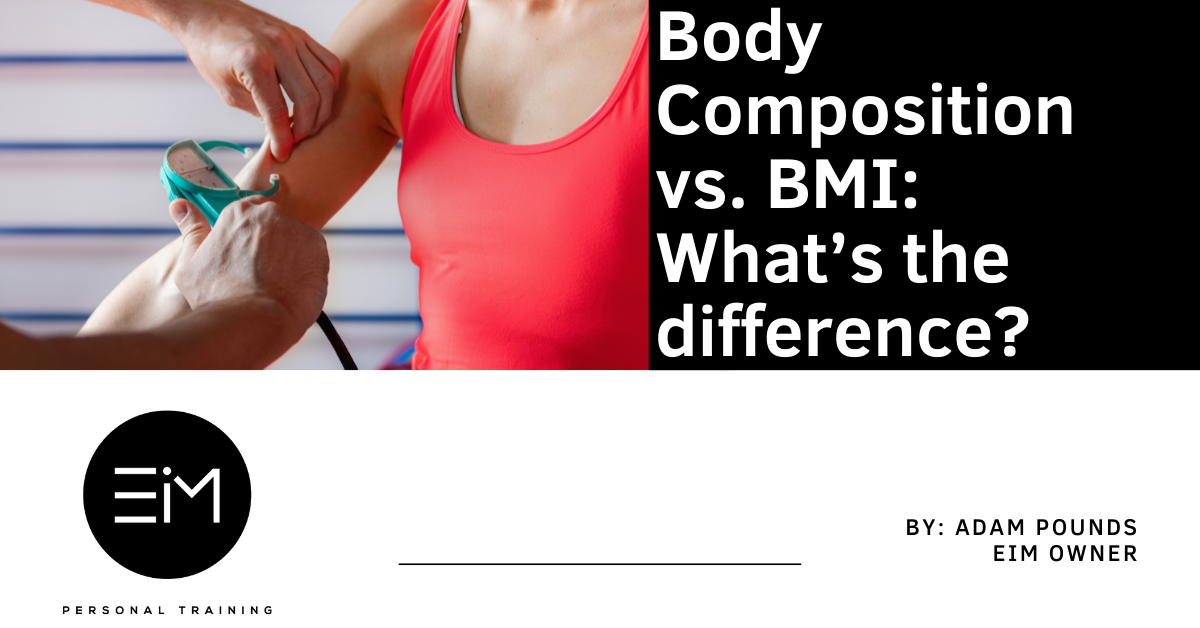By: Adam Pounds, EIM Owner
Body Composition and BMI (Body Mass Index) are two things that you hear a lot about in the fitness world and just in general when talking about a person’s weight.
But what do they actually mean and what’s the difference?
Which is better – BMI or Body Composition?
Not a lot of people know the major differences in body composition and BMI, but to sum it up, body composition is best for measuring fitness level while BMI is best for accessing health risks.
Want to know more? Below, I’ll explain what they are and exactly what makes them different.
Body Composition: Best for Measuring Fitness Level
Body composition measures your weight in a very specific way that’s different from BMI. Body Composition specifically measures how much of your total weight comes from lean mass, like your bones and muscles, versus how much weight comes from actual fat.
Body composition is the most accurate at determining your fat percentage.
So you might be wondering, “How do I measure my body composition?”
Measuring body composition is no easy task and something that has to be done by a professional. There are many different ways that body composition is measured but some are more practical than others.
First off, there are machines that you can stand on that will measure your body composition, but they usually aren’t very accurate.
Another way is the more traditional skinfold technique. This is where the skin is pinched at a specific area of the body such as the quadriceps or abdomen. Special skinfold calipers are then used to measure the skinfold thickness in millimeters. This measurement is then put through an equation to get your body composition.
There are a couple more ways, like an Air Displacement Plethysmography (also known as a bod pod), and Hydrostatic Weighing, but these are much more expensive and harder to get done.
Body Mass Index: Best for Accessing Health Risks
Body Mass Index, normally called BMI, is another form of body measurement. BMI is basically the measurement of your weight in respect to your height. But this doesn’t necessarily measure body fat.
This is used as a general indicator for health instead of a direct measurement of body fat.
BMI is much easier to calculate than body composition because BMI is a simple formula. This formula is your weight in kilograms divided by your height in meters squared. This formula works for adults, male and female, in the age range of 18-65.
Here is a breakdown of what the number you come up with actually means.
- Underweight < 18.5
- Ideal weight = 18.5-24.9
- Overweight = 25-29.9
Which is Better for Measuring Overall Health?
Both BMI and Body Composition are very useful when learning about the health of your body. Each will teach you different things, but both are equally important. Body composition is a great tool to use if you have access to getting that information, but if you don’t, BMI works too.
If you’re wanting to measure your fitness progress, body composition is what you should use. When you’re trying to access your overall health and check your risks for disease, BMI is a better measurement.
If you’re interested in learning more about improving your body composition or BMI, reach out to the professionals at EIM. No matter if you’re a fitness guru or have never worked out, our experts would love to meet with you!

